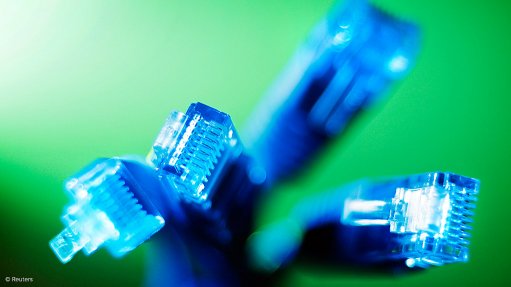
According to the 2013 State of Broadband report, released by the United Nations (UN) Broadband Commission, 41% of individuals in South Africa used the Internet, which was above the world average of 35.7%.
Worldwide, South Africa ranked ninety-second out of 192 countries with regard to the number of individuals using the Internet. The country ranked forty-seventh among the 144 developing countries surveyed.
Of all South African households, 25.5% had Internet access, which resulted in a ranking of forty-fourth out of the 128 developing countries where households had Internet access.
Meanwhile, according to the report, South Africa ranked 111th worldwide with regard to fixed broadband penetration, and sixty-second with regard to mobile broadband access, with 2.2 and 26 out of every 100 people having access respectively.
According to the report, global mobile broadband subscriptions, which allowed users to access the Web via smartphones, tablets and WiFi-connected laptops, were growing at a rate of 30% a year.
“By the end of 2013, there will be more than three times as many mobile broadband connections as there are conventional fixed broadband subscriptions,” the UN Broadband Commission stated.
Further, by the end of 2013, the number of broadband subscriptions in the developing world would also, for the first time, exceed the number of broadband subscriptions in the developed world, in terms of both fixed and mobile broadband.
The UN Broadband Commission pointed out that Africa was the region with the largest remaining growth potential in the world, estimating that the telecommunications services market will grow by 1.5-billion people – almost half the remaining market worldwide – by 2050.
Meanwhile, broadband could make a significant contribution to the attainment of the Millennium Development Goals, UN Broadband Commission co-chair Carlos Slim Helú said.
“Beyond 2015, the way forward should be to unleash the smart use of broadband to enhance delivery of services in education, healthcare, banking and other sectors. Broadband should also empower young people in the developing world to innovate and be more competitive globally," UN Broadband Commission co-chair and president Paul Kagame added.
UN Educational, Scientific and Cultural Organisation director-general Irina Bokova concurred that the global roll-out of broadband Internet carried vast potential to enhance learning opportunities, to facilitate the exchange of information and to increase access to content that was linguistically and culturally diverse.
“It can widen access to learning, enhance its quality and empower men and women, girls and boys, with new skills and opportunities. But this does not happen by itself – it requires leadership, planning and action,” she said.
Further, the report, reiterated the finding that broadband could boost a country’s gross domestic product, which would help combat poverty and hunger.
“In South Africa, wireless broadband and related industries may generate $7.2-billion and a further 28 000 jobs by 2015,” the UN Broadband Commission stated.
Meanwhile, globally, the Republic of Korea continued to have the world’s highest household broadband penetration at more than 97%, while Switzerland led the world in fixed broadband subscriptions per capita, at more than 40%.
By comparison, the US ranked twenty-fourth in terms of household broadband penetration, and twentieth in the world for fixed broadband subscriptions per capita, just behind Finland and ahead of Japan.
Iceland, at 96%, had the highest percentage of individuals using the Internet, followed by Norway, Sweden, Denmark, the Netherlands, Luxembourg and Finland, which all scored above 90%.